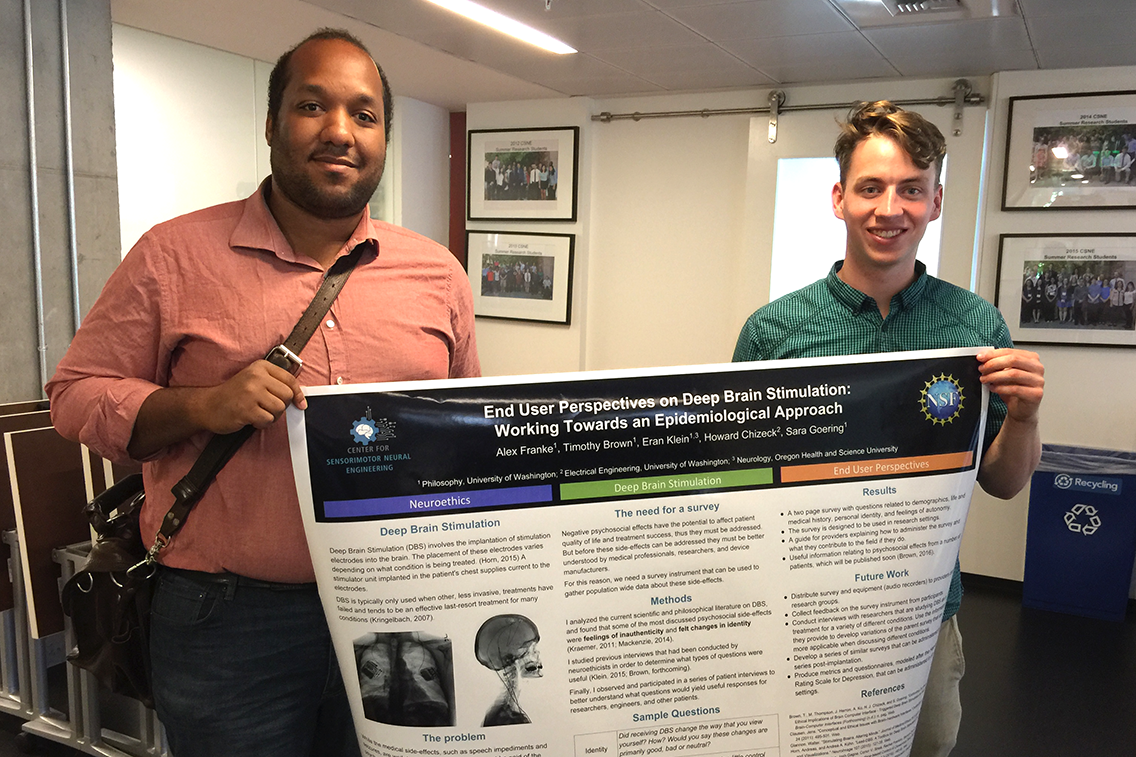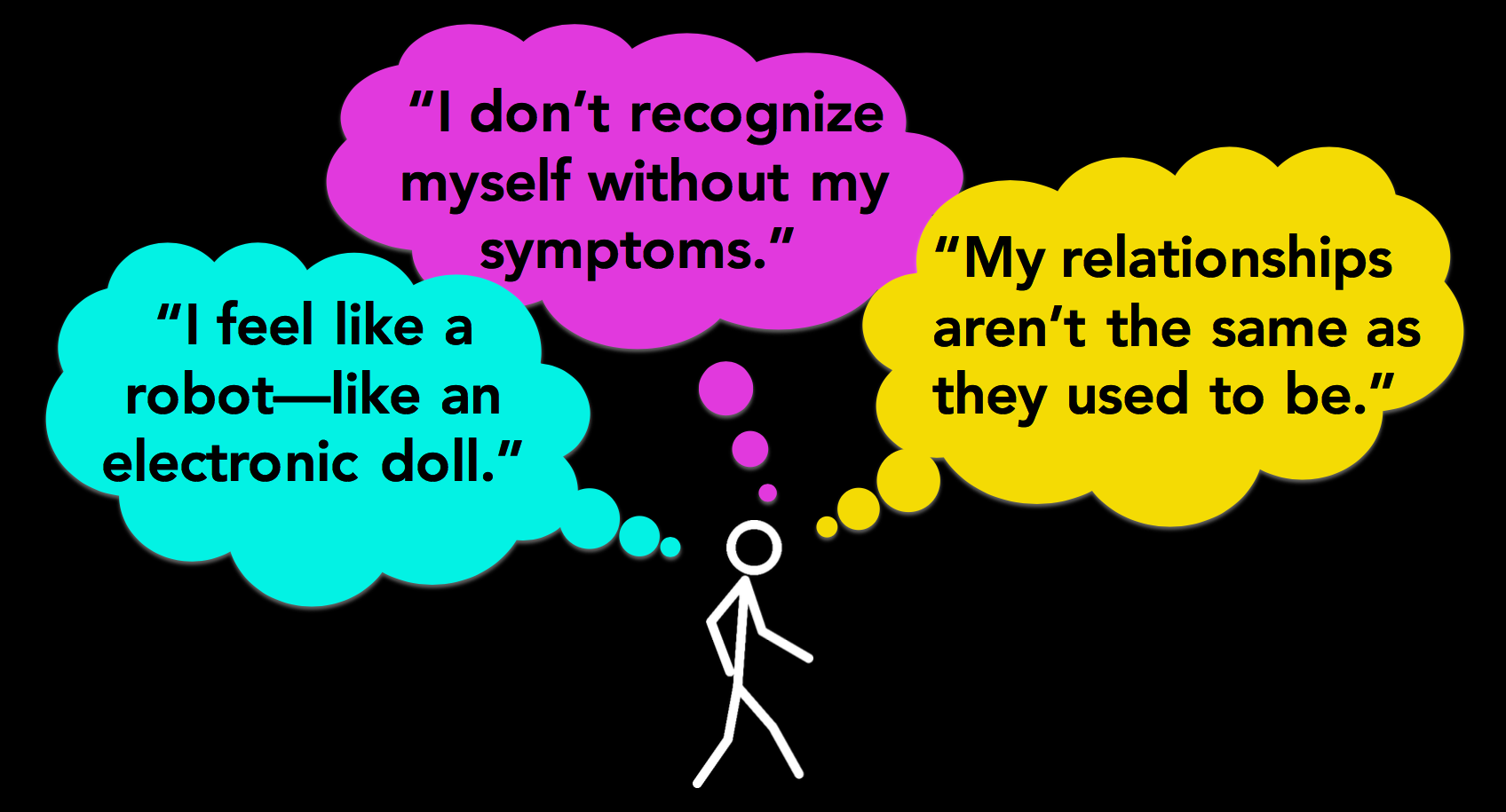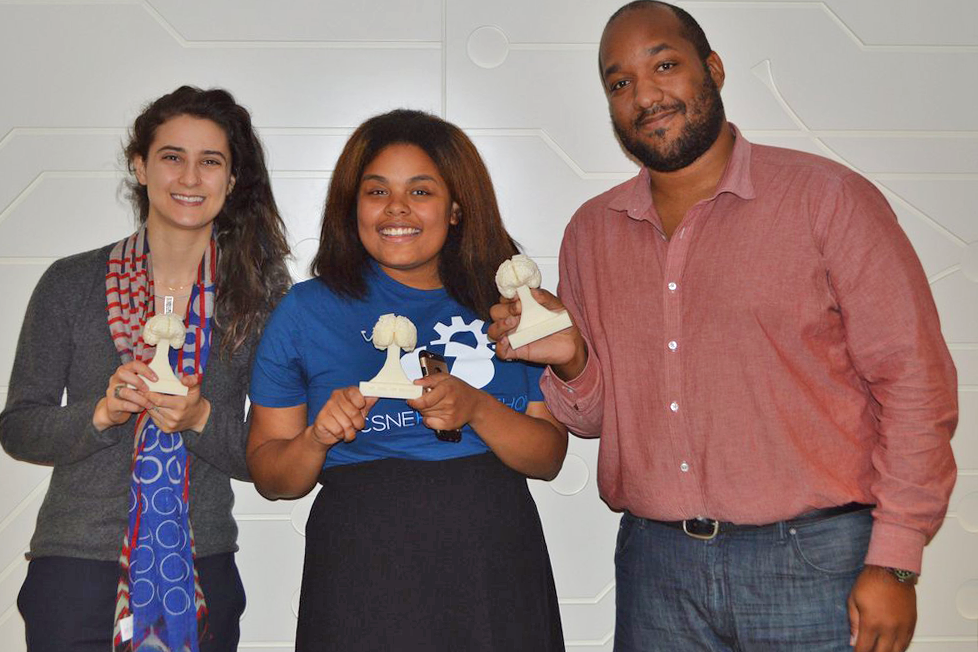August
22nd
, 2016

Alex Franke, my mentee for the Summer, just completed the CSNE‘s Research Experience for Undergraduates program. Over the course of 10-weeks, Alex helped put together a questionnaire for people using Deep Brain Stimulators (DBS)—the goal being to see if invasive neural technologies alter their users’ sense of autonomy, self-control, or personal identity. It was excellent working with Alex, and I look forward to seeing how he uses the tools he learned over the Summer in the rest of his academic and professional life. Congratulations, Alex! Also, congratulations to all of the CSNE’s summer students! Read more about their work here.
More →
July
18th, 2016

An abstract I submitted to the International Neuroethics Society’s 2015 meeting was selected to be published in AJOB Neuroscience. There were so many excellent abstracts selected, and you should probably check them out. Here’s an excerpt from mine, entitled “Who Am I When I’m In Control?”: The Identity Ethics of Closed-Loop Deep Brain Stimulation for Essential Tremor:
Deep Brain Stimulation (DBS)—where a low-level of electrical current is applied to a targeted region of the brain—is an effective treatment for moderate-to-severe ET symptoms. Stimulation, however, causes side-effects for some users: tingling sensations, numbness, and speech impairment. These side-effects, of course, can lower quality of life in some patients. Further, several users have reported feelings of self-estrangement, alienation from others, and lack of motivation in life. Several argue that these testimonies are evidence that DBS can threaten the user’s identity by making it difficult act in authentic ways—that is, some users cannot be their authentic self while using DBS.
More →
November
11th, 2015

This week, I had the amazing privilege of competing in the CSNE’s 2nd annual hackathon. It was a grueling three days, but it was worth all of the sweat and tears. I was fortunate enough to be part of the winning team this year, but each team came up with something awesome—the competition was stiff! Here’s an excerpt from an article in The Daily:
The winning team included Brown, Jaycee Holmes from Spelman College, and Catherine Yunis from MIT. Their project, Face the Music, was an open-source creative software outlet that uses facial electromyography to make facial rehabilitation systems more engaging. Users can draw, play music, or create art using the recorded electrical activity.
More →


